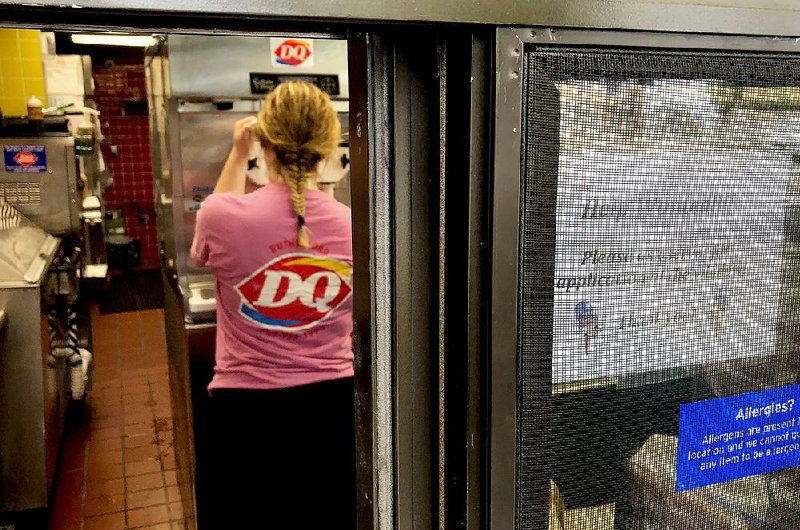U.S. job openings rose in July to a fresh record and the biggest share of workers since 2001 quit their positions, adding to signs of labor-market strength that may push wages higher, Labor Department data showed Tuesday.
Job postings exceeded the number of unemployed people by 659,000 in July, the most in data back to 2000. Along with the number of quitters, the gap helps explain why wages rose in August at the fastest pace since 2009, as employers struggle to find qualified workers and Americans become more confident in leaving their jobs for better pay elsewhere amid Republican-backed tax cuts that have boosted the economy.
The rise in the quitting rate was driven by private-sector employees, whose share of people voluntarily leaving their jobs rose to 2.7 percent, also the highest since 2001 and up from 2.4 percent in February. Federal Reserve Chairman Jerome Powell has highlighted the quits rate as suggesting that the economy is near full employment.
The data showed the number of job openings rose 1.7 percent to 6.9 million, the most on record dating back to late 2000. The number of people quitting jumped 3 percent to 3.58 million, also a record. Quits are typically a good sign that jobs are plentiful, because people usually quit when they have another job or are confident they can find one.
With the unemployment rate at 3.9 percent, near an 18-year low, businesses are increasingly desperate to find workers. Even as the number of available jobs rose, overall hiring in July was essentially flat, with about 5.7 million people finding jobs, the report showed.
The data are from the government's Job Openings and Labor Turnover survey which tracks total job openings, quits and hiring.
A separate survey from the National Federation of Independent Business showed 38 percent of U.S. small businesses had openings that they couldn't fill in August, a record in data back to 1973.
Although it lags the Labor Department's other jobs data by a month, the report adds context to monthly employment figures by measuring dynamics such as resignations, help-wanted ads and the pace of hiring.
The report comes after the government said on Friday that employers added a healthy 201,000 jobs in August. That figure represents the net total of jobs added, while the Tuesday data report overall hires without subtracting quits, layoffs and resignations.
The jump in job openings in July suggests solid hiring will continue in the coming months.
Other private sector surveys also pointed to solid gains. ManpowerGroup's employment outlook survey, released Tuesday, found that employers in all 13 large industries that it tracks plan to add workers in the final three months of the year. The staffing company's survey also found that hiring should pick up in all four regions.
The company's hiring index in the South reached a 10-year high, ManpowerGroup said.
With the economy growing at a healthy clip and consumers spending freely, employers are optimistic about future demand and want to hire more. That appears to be finally pushing some employers to pay more, pushing up wages.
According to Friday's jobs report, average hourly pay rose 2.9 percent in August compared with a year earlier. That was the best annual gain since June 2009, when the recession ended.
A more dynamic job market, with more people quitting and finding new work, can help fuel better wage gains. Workers who switch jobs are getting raises roughly one-third larger than those who remain at their jobs, according to the Federal Reserve Bank of Atlanta.
"Mobility of workers between jobs boosts competition for talent and puts pressure on employers to offer better pay and benefits," said Cathy Barrera, chief economist for online job site ZipRecruiter.
Openings rose in manufacturing, finance and insurance, and hotels and restaurants. They fell in retail and in education and health fields.
Information for this article was contributed by Katia Dmitrieva, Nancy Moran and Matthew Boesler of Bloomberg News and by Christopher Rugaber of The Associated Press.
Business on 09/12/2018

